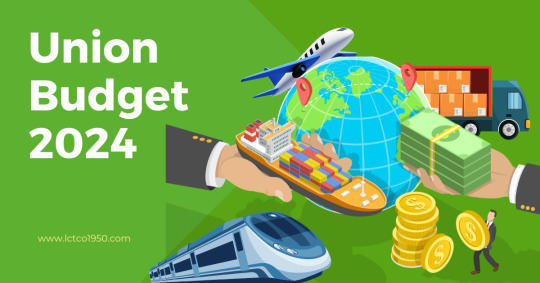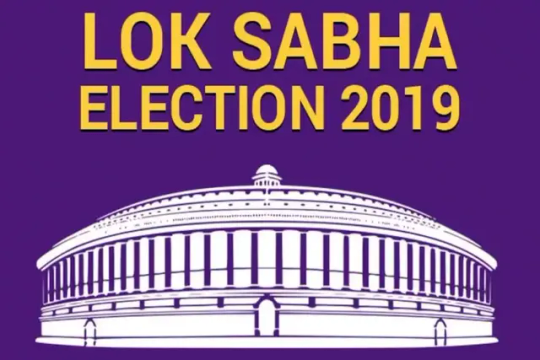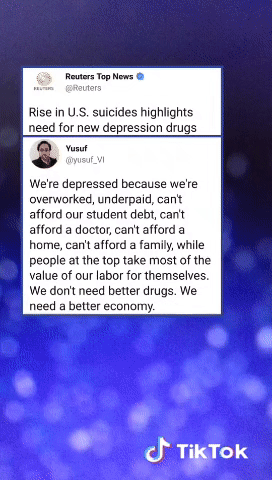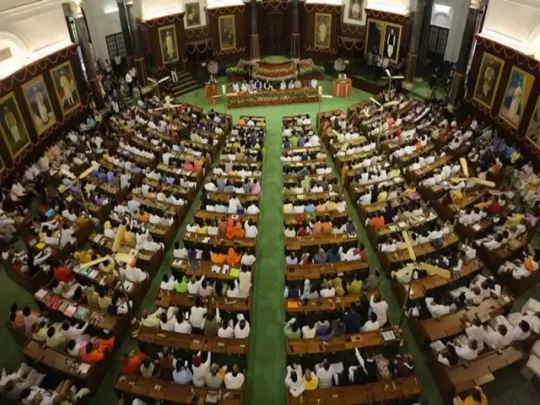#EconomicReforms
Text

Prime Minister Modi Unveils Major Economic Milestones for India
Prime Minister Narendra Modi’s Bi-Weekly Bharat newsletter highlights India’s economic achievements. Key points include a record market capitalization of $5.5 trillion, 1.4 lakh recognized startups creating 15.5 lakh jobs, and a 35% increase in employment to 64.33 crore over six years. The manufacturing sector added 85 lakh jobs from 2017-2023. Exports grew by 5.5% to $21.2 billion, with projections to surpass $800 billion this fiscal year. Outward FDI commitments rose to $2.14 billion in June 2024, up from $1.14 billion in June 2023. These figures showcase growth across various sectors, including technology and manufacturing.
#letsdiskuss#online discussion forum#onlinediscussion#social media#india#socialmedia#best hindi discussion forum#ask questions in hindi#constitutionalrights#PMModi#IndianEconomy#BigBangNumbers#EconomicGrowth#GovernmentPolicies#IndiaDevelopment#Modinomics#NewIndia#FinancialFigures#StatusUpdate#EconomicReforms#GDPGrowth#ProgressReport#BetterFuture#NationBuilding#PolicyUpdates#SustainableDevelopment#InvestmentOpportunities#StableEconomy#GlobalCompetitiveness
0 notes
Text

Union Budget 2024: Top 20 Highlights Impacting The Real Estate Sector
0 notes
Text
National Logistics Policy: India's Path to Global Competitiveness Amidst Budget Expectations

As Union Finance Minister Nirmala Sitharaman prepares to present the Budget for 2024-25 in the Lok Sabha on July 23, the nation anticipates significant economic reforms. This Budget, the first major economic document of the Modi 3.0 government, is expected to lay a road map for making India a developed nation by 2047. Amidst expectations for tax relief to boost consumption, measures to curb inflation, and initiatives to accelerate economic growth, the National Logistics Policy (NLP) continues to play a pivotal role in India’s economic transformation.
Understanding the National Logistics Policy
Launched by the Government of India, the National Logistics Policy aims to address inefficiencies in the logistics sector, which have been a bottleneck for economic growth. The sector is currently fragmented, with multiple stakeholders and regulatory challenges leading to high costs and inefficiencies. The NLP seeks to integrate various modes of transport, streamline regulatory processes, and promote the use of technology to create a seamless logistics network.
Budget 2024-25: Expectations and Implications for Logistics and Business
As the Modi government prepares to present its economic vision for the coming fiscal year, several key expectations have emerged:
Tax Relief for the Common Man: Experts have urged the government to provide tax relief to boost consumption, which in turn would drive demand across various sectors, including logistics and manufacturing.
Measures to Curb Inflation: With inflationary pressures affecting both consumers and businesses, the Budget is expected to include measures to stabilize prices, ensuring a more predictable economic environment.
Economic Growth and Job Creation: On July 11, Prime Minister Narendra Modi emphasized a renewed thrust on job creation and a concerted push to manufacturing and rural businesses during a meeting with top economists. This focus is expected to translate into policies that bolster employment opportunities and stimulate economic activity.
Strategic Initiatives under the National Logistics Policy
Reducing Logistics Costs: A primary objective of the NLP is to reduce logistics costs as a percentage of GDP from the current 14-15% to about 8%. This reduction will make Indian goods more competitive in the global market, especially if supported by favorable tax policies.
Enhancing Efficiency: By improving logistics infrastructure and processes, the NLP aims to reduce transit times and costs. The Budget is expected to allocate funds for better road and rail connectivity, efficient warehousing, and the adoption of technology for real-time tracking.
Promoting Multi-Modal Transport: Integrating road, rail, air, and waterways to ensure the most efficient mode of transport is used will be crucial. The Budget may include incentives to promote multi-modal logistics hubs and corridors.
Standardization and Digitization: The NLP promotes the standardization of logistics processes and the use of digital platforms for seamless information flow. The Budget could introduce policies that support the development of a unified logistics interface platform.
Sustainability: The policy emphasizes sustainable logistics practices, encouraging the use of green technologies. The Budget might allocate resources for promoting eco-friendly logistics solutions.
Industry Expectations from the Budget
Ashok Rajpal, Managing Director of Ambrane India , highlighted the industry's expectations: "We look forward to policies that reinforce domestic manufacturing, foster innovation, and enhance our global competitiveness. Financial incentives and simplified regulatory frameworks are crucial for maintaining sector vitality. Additionally, fostering self-sufficiency in advanced technologies will significantly enhance local manufacturing efforts."
Rajpal's statement underscores the importance of the Budget in shaping policies that drive domestic manufacturing and innovation. The logistics sector, being integral to manufacturing and supply chains, stands to benefit significantly from these initiatives.
Impact on the Indian Economy
The National Logistics Policy, supported by a favorable Budget, is expected to have a profound impact on the Indian economy:
Boosting Exports: By reducing logistics costs and improving efficiency, Indian products will become more competitive in the global market, leading to a boost in exports.
Attracting Foreign Investment: Improved logistics infrastructure will attract foreign investment, as global companies seek efficient supply chains for their operations.
Job Creation: The development of logistics parks, modernization of ports, and dedicated freight corridors will create employment opportunities in construction, operations, and maintenance.
Challenges and the Way Forward
Implementing the National Logistics Policy alongside the Budget initiatives will come with challenges. Coordinating between multiple stakeholders, including central and state governments, private players, and regulatory bodies, will be critical. Ensuring timely completion of infrastructure projects and effective use of technology will also be key to the policy's success.
To overcome these challenges, the government needs to adopt a collaborative approach, engaging with stakeholders at every level. Continuous monitoring and evaluation of the policy's impact will be essential to make necessary adjustments and improvements. Promoting awareness and understanding of the policy among businesses and the general public will be crucial for its successful implementation.
Conclusion
As the nation awaits the presentation of the Budget for 2024-25, the National Logistics Policy remains a cornerstone of India’s economic strategy. The policy's focus on reducing costs, improving efficiency, and promoting sustainable practices aligns with the broader economic goals of the Modi 3.0 government. The successful implementation of the NLP, supported by the Budget’s favorable measures, will be instrumental in realizing India's vision of becoming a $5 trillion economy and a developed nation by 2047.
#NationalLogisticsPolicy#Budget2024#IndiaBudget#EconomicGrowth#Modi3Government#India2024#LogisticsReform#GlobalCompetitiveness#ManufacturingInIndia#IndianEconomy#TaxRelief#InnovationIndia#InfrastructureDevelopment#SustainableLogistics#JobCreation#MakeInIndia#LogisticsEfficiency#EconomicReforms#SupplyChainIndia#FutureOfIndia
0 notes
Text
Keir Starmer's Ambitious Agenda
Keir Starmer, leader of the Labour Party, has set out an ambitious agenda, aiming to address a wide range of issues within the five-year window leading up to the next general election.
However, as a staunch conservative who recently voted for the Reform Party, I find it hard to see how he can satisfy the diverse factions and demands within his party and the country at large.

The Challenge of Diverse Demands
Starmer's task is herculean. Labour's base is not monolithic; it spans from traditional working-class supporters to progressive urbanites, each with distinct and sometimes conflicting priorities. On one hand, there are calls for radical economic reforms and stronger social justice measures. On the other hand, there is a need to appeal to the centrists and moderate voters who might be wary of sweeping changes.
Economic Reforms and Social Justice
Starmer has promised significant changes in economic policy, aiming to address income inequality and improve public services. However, these reforms will require substantial public spending, which may not sit well with all segments of the electorate. Balancing fiscal responsibility with the need for social investment is a tightrope walk that could define his leadership.
Brexit and National Identity
The lingering effects of Brexit continue to pose a significant challenge. Starmer needs to navigate the complex terrain of post-Brexit Britain, ensuring that the UK can thrive outside the EU while addressing the concerns of those who feel left behind by the decision. His stance on this issue must be clear and strategic to unify a divided nation.
Internal Party Dynamics
Within the Labour Party, Starmer must also manage internal dynamics, keeping both the left-wing factions and the more centrist members onside. The Labour Party has historically been plagued by internal strife, and maintaining cohesion while pushing forward his agenda will require deft political maneuvering.
The Role of the Reform Party
As someone who supports the Reform Party and Nigel Farage, I believe they are poised to become a significant force in British politics. If the Conservative Party does not address its own internal and external challenges, the Reform Party could very well emerge as the new leading opposition. Farage’s ability to galvanize support around clear, populist messages is something both Labour and the Conservatives need to contend with.
Keir Starmer’s journey over the next five years will be closely watched. While his intentions and policies are aimed at creating a better future for Britain, the practicality of achieving all his goals within such a short period is questionable. The political landscape is volatile, and as a conservative who believes in strong opposition, I will be observing how both Labour and the Conservative Party respond to the rising influence of the Reform Party.
In the end, the ability of any leader to enact meaningful change lies in their capacity to unite diverse groups and address their concerns effectively. Starmer has a long road ahead, and it remains to be seen if he can fulfil his ambitious promises while navigating the complex political terrain of modern Britain.
#KeirStarmer#LabourParty#UKPolitics#GeneralElection#PoliticalChallenges#EconomicReforms#SocialJustice#Brexit#NationalIdentity#InternalPartyDynamics#PoliticalLeadership#ReformParty#NigelFarage#OppositionParties#BritishPolitics#PoliticalLandscape#FutureOfPolitics#Election2024#ConservativeParty#PoliticalStrategy#quoteoftheday#new blog
0 notes
Text
A Resounding Victory: The Indian Financial Market's Response to the 2019 Lok Sabha Election Results
The 2019 Lok Sabha elections in India were a significant event, not only politically but also economically. The landslide victory of the Bharatiya Janata Party (BJP) under the leadership of Narendra Modi sent ripples across various sectors, notably the financial markets.
This blog post delves into the intricate dynamics of how the Indian financial markets responded to the BJP’s victory and what…

View On WordPress
#2014#2019#2024#BankingSector#BJPGovernment#Economic reforms India#EconomicReforms#Election results market reaction#ElectionImpact#FinancialMarkets#Foreign direct investment India#ForeignInvestment#GST#GST Bill India#Indian financial markets#Indian stock market history#IndianEconomy#Infrastructure stocks India#InfrastructureStocks#Investor sentiment 2014#InvestorSentiment#Jan Dhan Yojana#JanDhanYojana#LokSabhaElections2014#Make in India#MakeInIndia#Market reaction to elections#MarketVolatility#Modi economic policies#Modi government policies
0 notes
Text
Argentina's Labor Tax Reform: Simplifying Taxes and Boosting Jobs
#Argentinalabortaxreform #economicreforms #employercontributionsreduction #flatratetax #SergioMassaproposal
#Politics#Argentinalabortaxreform#economicreforms#employercontributionsreduction#flatratetax#SergioMassaproposal
0 notes
Photo

Get the signed copy of my co-edited book 'The Future of Indian Economy: Past Reforms and Challenges Ahead' with Shri #YashwantSinha in #WorldBookFair2023 Have a look at @rupa_publications, Stall number 205, Hall no 5. #economy #reform #economicreforms (at World Book Fair Pragati Maidan New Delhi) https://www.instagram.com/p/CpKwzqcvB_S/?igshid=NGJjMDIxMWI=
0 notes
Text
An economy based on debt, where no one owns anything, cannot stand.
#history#economy#politics#american politics#us politics#uspol#political#Marxism#communism#socialism#DebtEconomy#FinancialSystem#EconomicPolicy#EconomicTheory#FinancialDebt#NationalDebt#EconomicCrisis#EconomicInequality#DebtCrisis#FinancialStability#DebtCycle#EconomicGrowth#FinancialSector#MonetaryPolicy#FiscalPolicy#GlobalEconomy#FinancialFreedom#EconomicDevelopment#EconomicJustice#EconomicReform
2 notes
·
View notes
Text
Depression Has a Spiritual Cause Beyond the Sum-Total of Our Biochemical Processes
Notice the mantra being blindly repeated by Reuters here, namely: “Feeling bad? – throw a new and better pill at it.” How did we ever come to such a shallow view of our human existence? Here at Ruins on a Hill Media, “Where neglected & forgotten truths are unearthed,” I’d like to answer that question: We came to where we are, with such a one-dimensional view of our humanity, because, (1) We have…

View On WordPress
#9/11#atheismanddepression#atheismdebunked#bigpharma#biochemistryofdepression#communism#cosmicaccident#depressedeconomy#depression#dysthymia#economicdepression#economicreform#endtimes#endtimesprophecy#ghosts#godisnotdead#Illuminati#majordepression#moneypitNASA#naturalism#naturalismanddepression#oneworldorder#pharmacotherapy#pillpoppingculture#socialism#socialsecurity#stressedout#thebible#theemptytomb#theresurrectionofjesus
2 notes
·
View notes
Video
undefined
tumblr
Tanzania Takes Bold Step to Reduce Dollar Dependence!
0 notes
Text
youtube
#BillionaireHypocrisy#WealthTaxDebate#ExposeTheElite#EconomicJustice#TaxTheWealthy#FalseSolidarity#WealthInequality#DemandAccountability#ChangeIsNow#SocialInjustice#PhilanthropicDeception#SystemicInequality#EconomicReform#CorporateGreed#ClassDivide#IncomeDisparity#FairTaxation#GlobalWealthTax#FinancialTransparency#EliteHypocrisy#youtube#small youtuber#online business#entrepreneur#ecommerce#branding#marketing#accounting#bookkeeping#digitalmarketing
0 notes
Text
Rethinking Prices: The Hidden Costs of Goods and Services in Our Society
In the current landscape of global commerce, the prices attached to goods and services often fall short of reflecting the true environmental and social costs associated with their production and consumption. This discrepancy stems from a fundamental flaw in our economic system, where externalities—unaccounted costs borne by society as a whole—remain largely absent from market prices. This blog post explores the significant environmental and social costs overlooked by our economic model and proposes solutions to create a more sustainable and equitable economy.
Environmental Costs:
One glaring issue is the failure to include environmental costs in the prices of goods and services. Take the price of a gallon of gasoline, for instance. While it may seem reasonable at the pump, it does not factor in the broader costs of air pollution, climate change, and other ecological impacts. These costs are unfairly shouldered by society, rather than being accounted for by the companies responsible for the production and sale of gasoline.
Social Costs:
Similarly, the prices of goods and services fail to encompass the social costs associated with their production. Consider the price tag on a T-shirt; it does not reflect the hidden expenses of child labor, worker exploitation, and other social and economic injustices. These costs are externalized, impacting society as a whole, while the companies behind the T-shirt profit without being held accountable for these injustices.
Externalities:
Environmental and social costs are commonly referred to as externalities because they are not integrated into market prices. This separation prevents businesses from internalizing these costs and creates a situation where they lack the necessary incentives to address and mitigate the negative impacts of their activities.
Market Failures:
Market failures occur when the market is unable to allocate resources efficiently. In the case of environmental and social externalities, the market allocates resources in ways that harm society rather than benefit it. The failure to internalize externalities contributes to a cycle of environmental degradation and social injustice.
Solutions:
Internalizing Externalities: One effective solution is to make businesses accountable for the environmental and social costs of their activities. This can be achieved through various means, such as imposing taxes, offering subsidies, or implementing regulatory measures that encourage responsible practices.
Public Goods: Public goods, like clean air and water, are essential for society but often overlooked in market pricing. Governments or collective action can play a crucial role in providing and preserving these goods, ensuring their availability to all without depleting their resources.
Community Supported Agriculture (CSA): CSA offers a direct and sustainable connection between consumers and local farmers. By purchasing a share of a farm's harvest, consumers actively support environmentally friendly and socially responsible agricultural practices.
Fair Trade: The Fair Trade movement champions social justice and environmentally sustainable production. Products certified as fair trade adhere to standards that guarantee fair wages for workers and protect the environment. Supporting fair trade encourages responsible consumer choices and promotes ethical business practices.
In addressing the problem of externalities, we pave the way for a more sustainable and equitable economy. By internalizing these hidden costs, whether through regulatory measures, public goods initiatives, community-supported agriculture, or fair trade practices, we can forge a path toward a future where the prices of goods and services align with the values of a healthier environment and a more just society. Through collective action and conscious consumer choices, we can build a more sustainable economic framework that prioritizes the well-being of our planet and its inhabitants.
#philosophy#epistemology#knowledge#learning#chatgpt#education#ethics#psychology#economics#politics#SustainableEconomy#EnvironmentalCosts#SocialJustice#MarketFailures#Externalities#EconomicReform#FairTrade#CorporateResponsibility#ConsciousConsumption#ClimateAction#CommunitySupportedAgriculture#EthicalBusiness#PublicGoods#GreenEconomy#SocialCosts#RegulatoryMeasures#EcoFriendlyBusiness#ResponsibilityInCommerce#EnvironmentalAwareness#SustainableLiving
0 notes
Link
0 notes
Text
Macron Calls Snap Election 2024
The political landscape of Europe has been rocked by a seismic shift as French President Emmanuel Macron calls for snap elections. This move comes amid a significant surge in support for far-right parties, particularly Marine Le Pen's National Rally, which has made historic gains in the recent European elections. Macron's decision underscores a palpable sense of urgency and perhaps even nervousness within the centrist camp, as the far-right momentum shows no signs of abating.
A Nervous Macron
Emmanuel Macron, who swept into power in 2017 with promises of reform and rejuvenation for France, now finds himself in a precarious position. The rise of far-right sentiment across Europe, and particularly in France, has posed a direct challenge to his presidency. The recent European elections highlighted this shift, with Marine Le Pen's National Rally securing a significant share of the vote, reflecting widespread discontent with Macron's policies.
The decision to call snap elections can be seen as a strategic move by Macron to consolidate his position and rally his base. However, it also reveals a recognition of the growing power and influence of the far-right, an influence that can no longer be ignored or underestimated.
The Surge of the Far-Right
Marine Le Pen's National Rally has capitalised on a variety of issues that resonate deeply with many French citizens. Concerns about immigration, national identity, and economic stability have all played into the hands of the far-right. Le Pen's party, with its nationalist and anti-immigration stance, has struck a chord with voters who feel left behind by globalisation and disillusioned by the traditional political elite. It's important to clarify that the term "far right" does NOT automatically equate to being a Nazism. The far right encompasses a broad spectrum of ideologies, ranging from conservative to extreme nationalist positions.
The recent European elections were a testament to this growing support. The National Rally's historic gains are not just a reflection of discontent with Macron but also a broader trend across Europe, where far-right parties are gaining traction. Countries like Italy, Germany, and Spain are witnessing similar surges, indicating a continental shift towards right-wing populism. I wish here in my own country the United Kingdom we had such a surge of wisdom.

The Immigration Debate
One of the most contentious issues fuelling the rise of the far-right in France is immigration. Macron's policies have been criticised by many as being too lenient, leading to perceptions of increased crime and social unrest. This narrative has been effectively leveraged by Le Pen and her party to galvanise support. They argue that Macron's government has failed to protect French identity and values, allowing immigrants to "run rampant" across the country.
This rhetoric has found a receptive audience, particularly in regions hit hardest by economic stagnation and social change. The fear and frustration of these communities have translated into votes for the National Rally, further eroding Macron's support base.
The Road Ahead
As France heads towards snap elections, the stakes could not be higher. Macron faces the daunting task of reclaiming the trust of a divided nation while countering the growing influence of the far-right. His ability to address the concerns of ordinary French citizens, particularly around issues of immigration and national identity, will be crucial.
Marine Le Pen and the National Rally will continue to push their agenda, buoyed by their recent successes. The upcoming elections will serve as a critical juncture for France, determining whether the country will continue on its current path or take a decisive turn towards the right.
The call for snap elections by Emmanuel Macron is a clear indicator of the shifting political dynamics in France and Europe. The rise of the far-right, driven by issues like immigration and national identity, presents a formidable challenge to the established political order.
As the election date approaches, all eyes will be on France to see how this pivotal moment unfolds. I’m throwing my full support behind Marine Le Pen in the 2024 French election. Her vision for national sovereignty, stricter immigration policies, and economic reform is what France needs for a stronger future.
#MarineLePen2024#FrenchElection#France2024#LePenForPresident#NationalSovereignty#ImmigrationPolicy#EconomicReform#FrenchPolitics#today on tumblr#new blog#Macron#Emmanuel Macron#French politics#France elections#Snap elections#Marine Le Pen#National Rally#Far-right#European elections#EU elections#Immigration#French identity#Nationalism#Populism#Political shift#French pride#Macron nervous
4 notes
·
View notes
Text
A Turning Point in India's Economic Landscape: How the Financial Markets Reacted to the 2014 Lok Sabha Election Results
The 2014 Lok Sabha elections in India marked a watershed moment in the country’s political and economic history.
For the first time in 30 years, a single party, the Bharatiya Janata Party (BJP), secured a clear majority in the Indian Parliament, paving the way for Narendra Modi to become the Prime Minister.
This political shift had profound implications for the Indian financial markets,…

View On WordPress
#2014 Lok Sabha elections#Banking sector India 2014#BankingSector#BJP victory 2014#BJPGovernment#Economic reforms India#EconomicReforms#Election results market reaction#ElectionImpact#FinancialMarkets#Foreign direct investment India#ForeignInvestment#GST#GST Bill India#Indian financial markets#Indian stock market history#IndianEconomy#Infrastructure stocks India#InfrastructureStocks#Investor sentiment 2014#InvestorSentiment#Jan Dhan Yojana#JanDhanYojana#LokSabhaElections2014#Make in India#MakeInIndia#Market reaction to elections#MarketVolatility#Modi economic policies#Modi government policies
0 notes
Text
Argentina's Labor Tax Reform: Simplifying Taxes and Boosting Jobs
#Argentinalabortaxreform #economicreforms #employercontributionsreduction #flatratetax #SergioMassaproposal
#Politics#Argentinalabortaxreform#economicreforms#employercontributionsreduction#flatratetax#SergioMassaproposal
0 notes